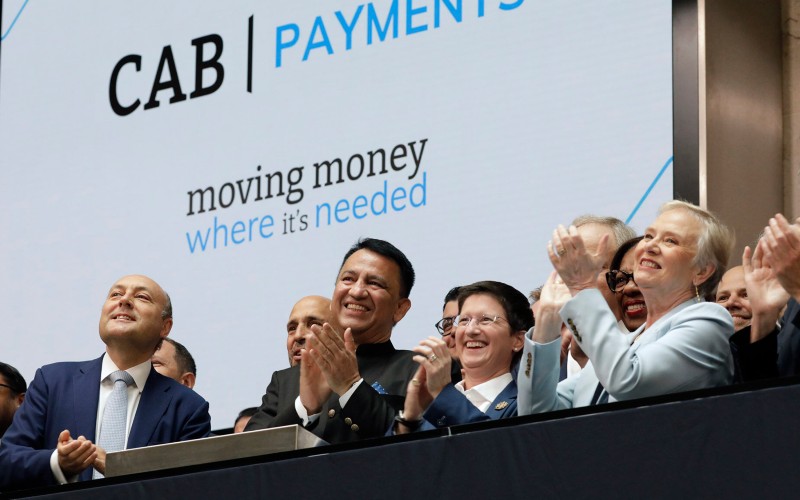Shares in CAB Payments dropped by 70 per cent after the FinTech issued a depressing trading update.
The company now has a market cap of £152.49m – down from its valuation of £851m when it underwent an IPO just three months ago.
The Sutton-based payments infrastructure company raised £335m from investors in July, in what was only the second main market listing in the capital this year.
CAB Payments, now the holding company for Crown Agents Bank, is a market leader in business-to-business cross-border payments and foreign exchange, specialising in hard-to-reach markets.
Total group revenue in Q3 was 10 per cent above that in Q2, and at the end of September 2023 was £105.5m year-to-date (compared to £67.4m in 2022).
Core FX and payments revenue excluding contribution from the Naira (the currency of Nigeria) was 45 per cent ahead of the same nine-month period in 2022.
In a statement to the London Stock Exchange on Tuesday morning CAB Payments said: “In recent weeks, the company has seen a number of changes to the market conditions in some of its key currency corridors, on top of the ongoing uncertainties surrounding the naira, which are impacting both volumes and margins; most notably, the Central African franc (XAF) and West African franc (XOF).
“At the present time, these market conditions are compressing margins and reducing trading volume.
“These challenges are recent but continuing, and coincide with the traditionally strong fourth quarter (Q4) for both of these corridors; it is unclear when and to what extent conditions in these markets may improve.
“Based on the revenue run rate to this point in Q4, the company now expects group revenue for 2023 to be at least 20 per cent ahead of the prior year (2022: £109.4m); this is around 17 per cent below previously issued guidance.
“This assumes no further changes to these core markets, and any material improvements here could result in a higher group outturn.
“The company will be seeking opportunities to lessen the impact on group profitability in 2023 through cost reduction measures and efficiencies, but any actions will be tempered by its ongoing confidence in the medium-term potential of the business. Therefore, the company anticipates that the majority of any revenue impact will flow through to the bottom line.”
CAB Payments has signed 74 new customers to date this year.
“Should the current market conditions persist in some of our key currency corridors, as described above, the softer exit rate from 2023 could result in 2024 revenue growth falling below the medium-term potential,” the company told the LSE.
“The company remains confident in its ability to continue to deliver strong growth over the medium-to-long-term by executing on the strategy it has outlined.
“The market in which the company operates is undergoing a structural shift from incumbent providers to specialists such as CAB Payments.
“The company is executing on its plans to take advantage of this shift by investing in and expanding its already strong network of partners, liquidity providers and nostro accounts across a range of markets.
“This includes further developing its technology solution, expanding its product offering and extending its geographic reach in order to broaden and grow its customer base.
“While the company is disappointed with recent market volumes, CAB Payments remains confident that the trends within the business-to-business cross-border FX and payments market continue to be supportive.
“The company has a well-managed cost base and focused investment plans, remains highly profitable and continues to generate significant free cash flow, which will be used to invest in the business and reward shareholders going forward.”
It’s a far cry from the company’s IPO, which CEO Bhairav Trivedi said would “allow us to continue delivering long-term sustainable growth for our clients and partners supporting the business with our aim to connect more people in hard-to-reach markets to global financial infrastructure”.

